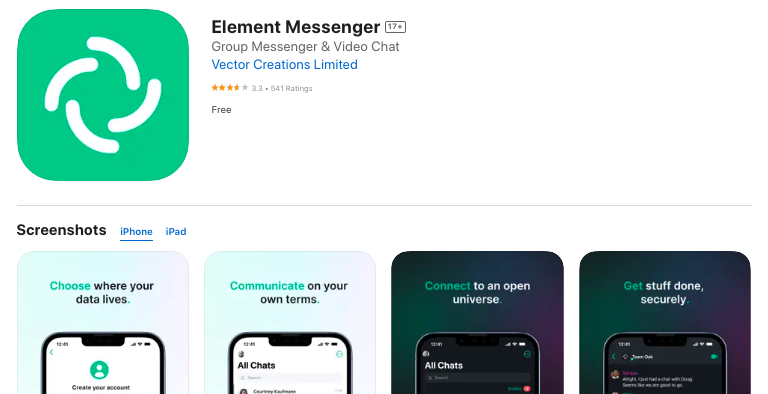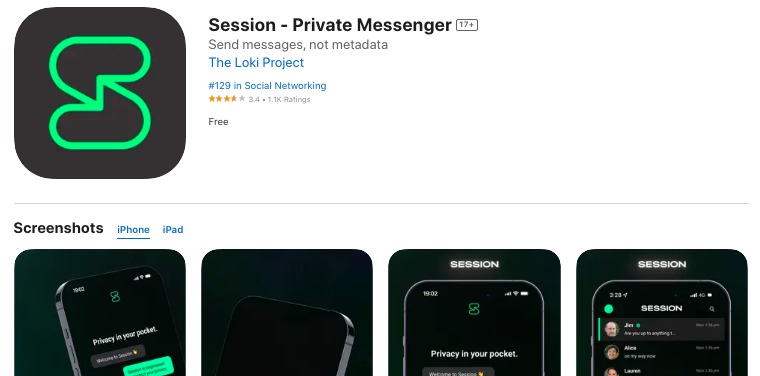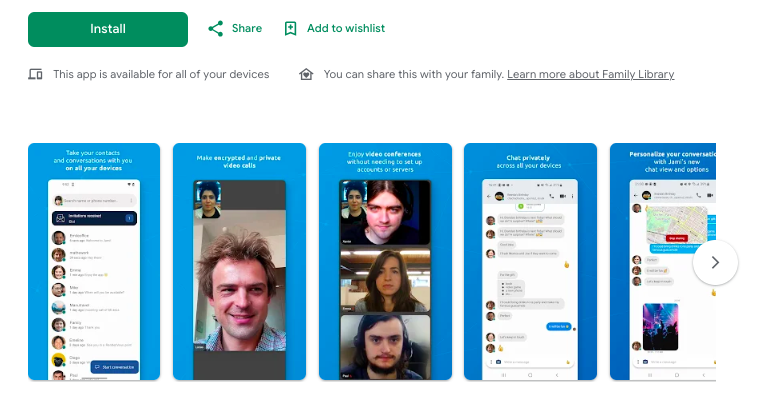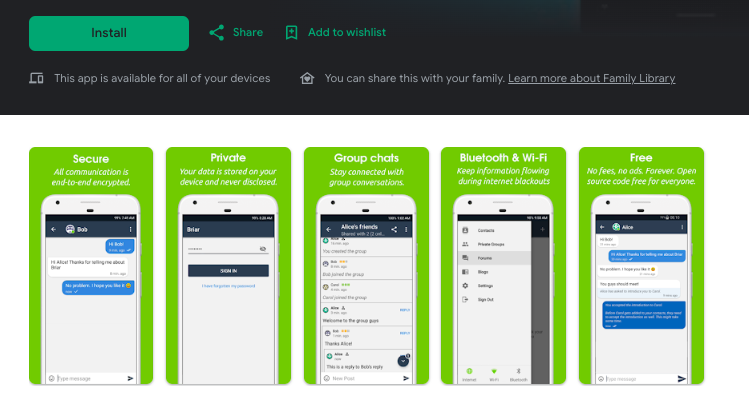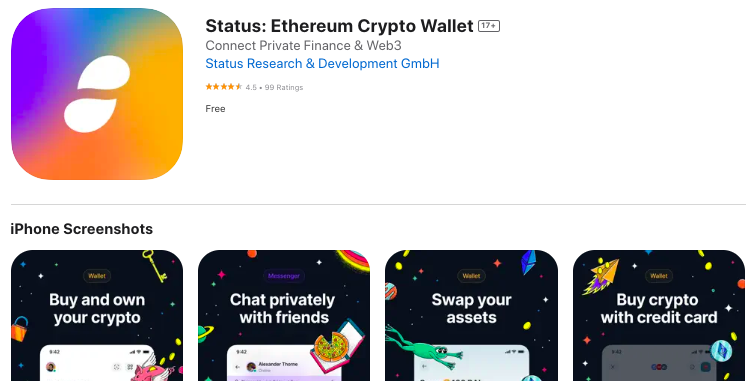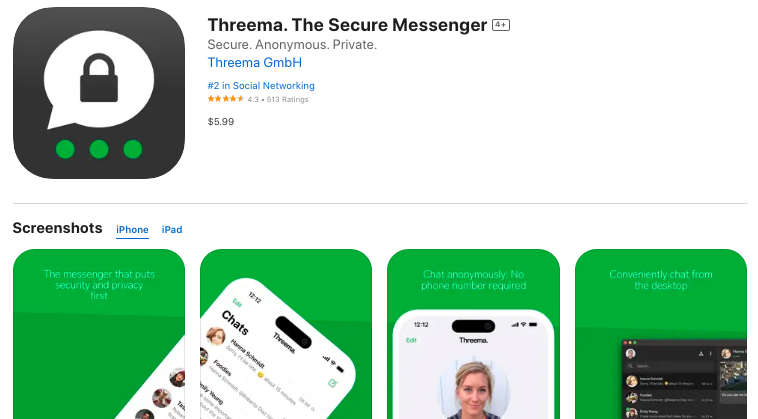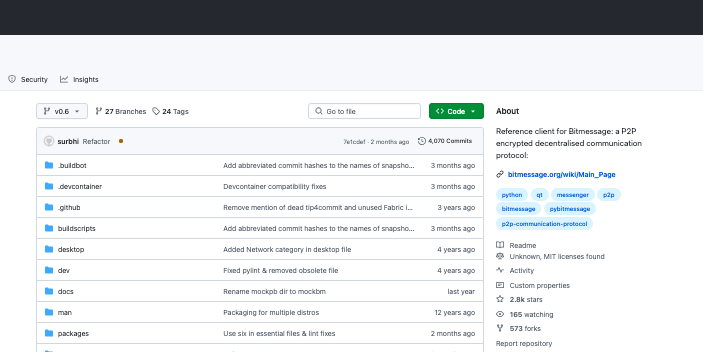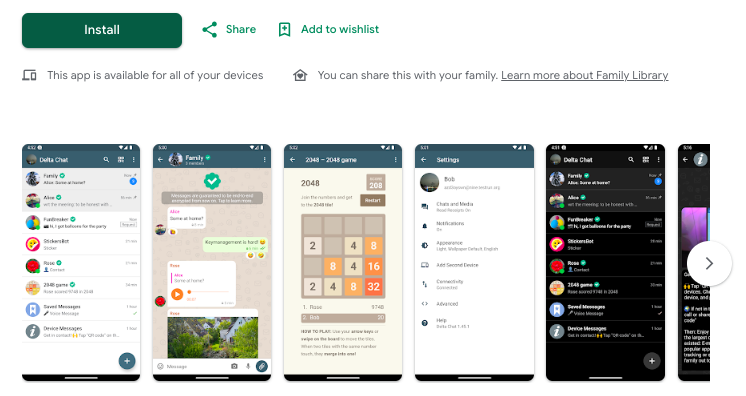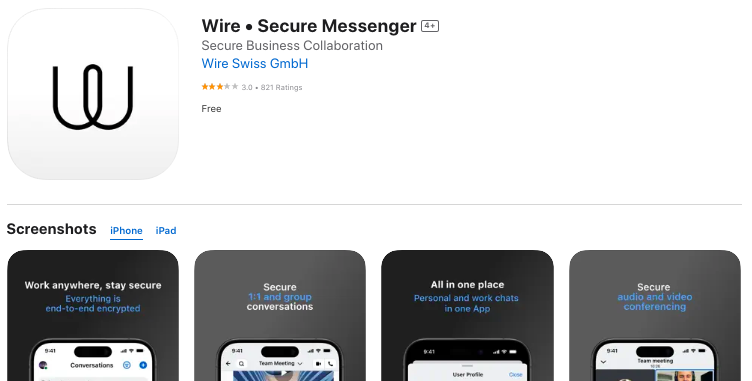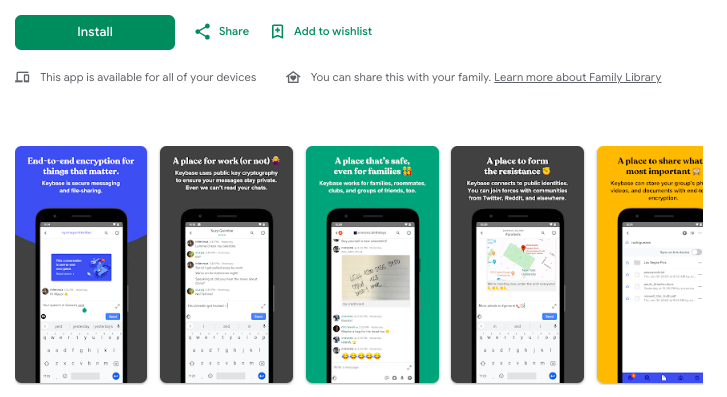The ability to communicate securely without surrendering personal information has become increasingly valuable today.
Most popular messaging platforms require users to provide phone numbers during registration, creating a permanent link between your digital communications and your real-world identity.
However, a growing number of privacy-focused alternatives are challenging this norm, offering robust security features without mandating phone verification.
These apps provide a sanctuary for privacy-conscious users, journalists, activists, and anyone seeking to maintain control over their digital footprint.
Let’s explore ten secure messaging applications that respect your privacy by not requiring a phone number.
1. Element (formerly Riot)
Element stands out as a feature-rich client for the Matrix protocol, an open-source network for secure, decentralized communication.
Users can create accounts with just an email address and username, bypassing the need for phone verification entirely.
Element offers end-to-end encryption through Matrix’s implementation of the Olm and Megolm cryptographic protocols, ensuring your messages remain private.
The platform supports individual and group messaging, voice and video calls, file sharing, and even bridges to other communication services.
Being open-source, Element’s security is continuously reviewed by independent experts, while its decentralized architecture means there’s no single point of failure or control.
The combination of user-friendly design, robust security features, and commitment to privacy makes Element a compelling choice for those seeking phone-number-free communication.
2. Session
Session takes privacy to remarkable heights by requiring no personal information whatsoever, not even an email address.
Built on a modified version of the Signal protocol and the Oxen blockchain network, Session routes messages through multiple servers to obscure metadata and protect user identities.
The app generates a unique Session ID for each user, which functions as their identifier within the network.
Messages are end-to-end encrypted and stored on a decentralized server network, making them resistant to censorship and monitoring.
Session also offers disappearing messages, group chats, and voice messages while maintaining a sleek, intuitive interface.
The developers’ commitment to collecting zero user data makes Session an exceptional choice for those who prioritize anonymity alongside security.
Also Read: Safe Messaging Apps For Kids
3. Jami
Jami distinguishes itself as a truly distributed communication platform that operates without central servers.
Users generate a unique Jami ID upon registration, requiring no personal information, and can optionally create a username for easier discovery.
The application employs end-to-end encryption by default and establishes direct peer-to-peer connections when possible, minimizing vulnerability to third-party interception.
Beyond secure messaging, Jami offers high-quality voice and video calling, screen sharing, and conference calls, positioning it as a comprehensive communication tool rather than just a messaging app.
Its distributed architecture means there’s no central authority with access to user data, and the open-source nature of the project allows for community scrutiny of its security implementations.
For users seeking a versatile communication platform with strong privacy protections, Jami presents a compelling solution.
Also Read: Secret Messaging Apps
4. Briar
Briar stands apart as a messaging app designed specifically for high-risk environments and adverse conditions.
It operates entirely peer-to-peer over Bluetooth, local WiFi networks, or the Tor network, functioning even when internet access is restricted or unavailable.
Account creation requires no personal information, and messages are stored locally on users’ devices rather than on external servers.
Briar implements end-to-end encryption for all communications and adds an extra layer of security by routing internet traffic through the Tor network to protect metadata.
The app includes private messaging, forums, and blogs, all designed to function in challenging environments.
The unique approach to connectivity makes Briar particularly valuable for activists, journalists, or anyone operating in regions with restrictive internet policies or during emergencies when traditional communication infrastructure fails.
Also Read: Best Alternatives To Discord For Private Servers
5. Status
Status combines secure messaging with Web3 functionality in an innovative approach to digital communication.
Users create accounts with a cryptographic key pair rather than phone numbers or email addresses, granting them complete control over their digital identity.
The platform utilizes the Whisper protocol for end-to-end encrypted messaging and operates on a peer-to-peer network to eliminate centralized points of vulnerability.
Beyond messaging, Status incorporates an Ethereum wallet and decentralized application browser, making it a gateway to the blockchain ecosystem.
Users can participate in public or private chats, share files securely, and interact with decentralized applications, all without surrendering personal information.
Status represents a forward-thinking approach to communication that aligns with the principles of Web3: user sovereignty, decentralization, and privacy by design.
6. Threema
Threema has built a reputation as a privacy-focused messaging service that allows users to create accounts anonymously.
While it does offer phone number linking as an option, this step is entirely voluntary. Users can register using just a randomly generated Threema ID.
The Swiss-based application employs robust end-to-end encryption for all communications, including messages, voice calls, group chats, and file transfers.
Threema minimizes data collection by storing contacts and groups on users’ devices rather than on central servers, and messages are deleted from servers immediately after delivery.
The app offers additional privacy features like the ability to protect the application with a PIN or biometric authentication, polls with end-to-end encryption, and a web client that works without requiring the phone to be connected to the internet.
Though Threema is not free, many users find the one-time purchase fee justified by its exceptional privacy protections and clean, intuitive interface.
Check Out: Pros & Cons of WhatsApp
7. Bitmessage
Bitmessage takes a distinctly different approach to secure messaging through its implementation of a decentralized, peer-to-peer communications protocol inspired by Bitcoin’s design.
Users generate address pairs similar to cryptocurrency wallets for identification rather than using personal information.
Messages are encrypted and distributed across the entire Bitmessage network, making it virtually impossible to determine who is communicating with whom, as every user receives all encrypted messages (though only the intended recipient can decrypt them).
This unique architecture offers strong protection against traffic analysis and metadata collection.
While Bitmessage’s interface is less polished than some alternatives and message delivery can be slower due to its architecture, these trade-offs provide extraordinary anonymity protections that few other platforms can match.
The system is particularly valuable for users in highly sensitive situations where conventional messaging risks may be unacceptable.
Check Out: Viber vs WhatsApp
8. Delta Chat
Delta Chat ingeniously transforms email infrastructure into a messaging platform, offering the familiar experience of modern chat apps while leveraging the established, decentralized email protocol.
Users need only an email address to get started, no phone number required, and can communicate with anyone else using Delta Chat or standard email.
Messages are encrypted end-to-end using the Autocrypt standard when both parties use Delta Chat, providing security without complicated key management.
The app offers features typical of messaging platforms, including group chats, media sharing, and read receipts, but with the advantage of not being tied to a single service provider.
This approach means users maintain complete freedom to choose their email provider based on their privacy preferences or switch providers without losing their messaging history or contacts.
Delta Chat’s clever repurposing of existing technology creates an accessible, privacy-respecting messaging option with minimal adoption barriers.
9. Wire
Wire offers a comprehensive secure communication platform that balances robust privacy protections with business-friendly features.
Personal accounts can be created with just an email address, bypassing the phone number requirement entirely.
The platform employs the Proteus protocol (based on the Signal protocol) for end-to-end encryption of messages, calls, and file transfers, ensuring communications remain private.
Wire stands out for its polished, feature-rich experience, including high-quality audio and video conferencing, screen sharing, and file collaboration tools.
The company operates under strict European privacy laws and publishes regular transparency reports detailing information requests from authorities.
While Wire offers premium plans with additional features for businesses, the personal version provides impressive functionality for free.
For users seeking a secure messaging solution that offers professional-grade communication tools without compromising on privacy, Wire represents an excellent choice.
Also Read: Is Signal App Used For Cheating?
10. Keybase
Keybase combines secure messaging with verified identity and encrypted file storage in a unique approach to digital privacy.
Users can create accounts with just a username, no phone number or email required, though the platform does encourage linking verifiable identities like social media accounts or websites to build a web of trust.
All messages and files are end-to-end encrypted by default, with cryptographic proofs ensuring you’re communicating with the intended recipient.
Beyond messaging, Keybase offers encrypted git repositories, team workspaces, and a 250GB encrypted file system for each user.
The platform’s innovative identity verification system allows users to prove ownership of their various online identities without centralized authority, creating a decentralized trust network.
While Keybase was acquired by Zoom in 2020, it continues to operate as a standalone service committed to privacy and security, making it a versatile tool for secure communication and collaboration.
Conclusion
Each of these platforms balances security, convenience, and features differently, allowing users to select the option that best aligns with their specific privacy needs and communication requirements.
Whether you’re seeking casual conversation with enhanced privacy or high-security communications in challenging environments, these applications demonstrate that robust protection is possible without sacrificing your personal information.
By adopting these tools, users can take meaningful steps toward reclaiming control over their digital identities.
Enjoyed the post?

